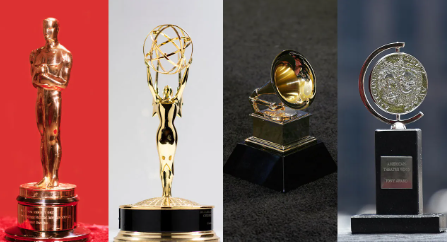Nearly every piece of media we consume will inevitably fall victim to our chokehold on critical acclamation. It’s undeniable that awards, such as the Grammy’s and the Oscars, have become considered measurements of success. This mindset begs the question: Is critical acclamation a valid way to determine the greatness of a piece of media? And, more importantly, does an award mean everything in the long run?
Anyone who’s been on TikTok recently has heard it all: certain artists’ awards being considered ‘robbed’ at the Grammys, uproar following objectively abysmal movies being showered in Oscars, and overall discontent with the results of this years’ awards season. Nowadays, it’s become normalized to idolize these awards, and, admittedly, this is understandable. When we resonate deeply with the messages and feelings evoked from songs and films, it’s just natural for us to want them to be recognized and celebrated. These awards aren’t only a source of validation for artists, but for their fans as well.
However, art is truly subjective. What resonates with one person just won’t feel the same for the next. Every viewer has a different perspective. Every listener is in a different stage of life. We connect meaningful media to our circumstances. It goes without saying that nobody’s circumstances are alike. Having someone else’s opinion determine what something means to you blatantly defeats its purpose. While awards hold prestige, the beauty of art is what it means to the viewer personally. It’s not about the relationship between the viewer and the voters. It’s about the connection between the art and the audience.
So, at the end of the day, a subjective award shouldn’t be considered a measurement of quality. No matter what the voters say, you get the freedom to determine your taste. No validation from an awards ceremony should have the liberty to change that.
Awards Season: Why Awards Don’t Mean Quality

